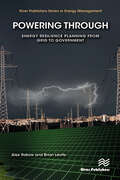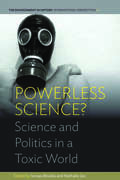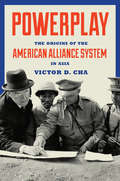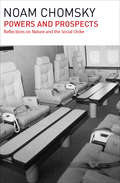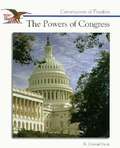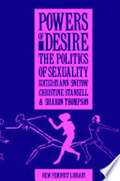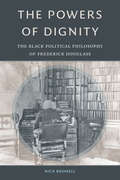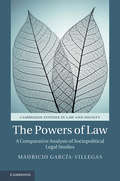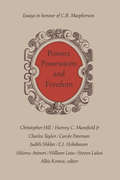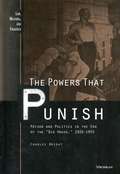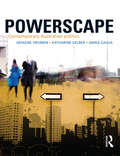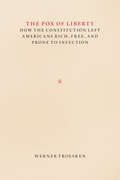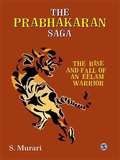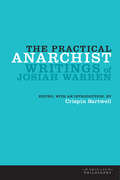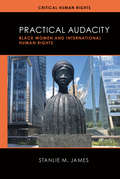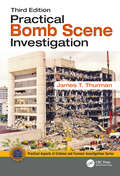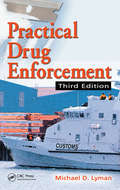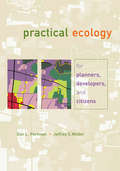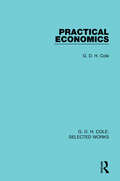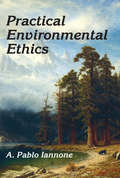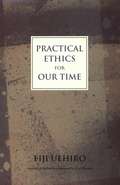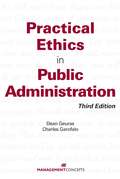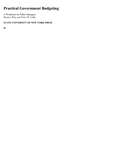- Table View
- List View
Powering Through: Energy Resilience Planning from Grid to Government
by Alex Rakow Brian LeviteThe threats to the electricity grid are on the rise at the same time as society is increasing its dependence on electricity for every aspect of our personal, social, and economic lives. We are accelerating that dependence – looking to the electrification of transportation and buildings as a way to stem the threats of climate change. Those threats have now arrived (in the form of more extreme weather, droughts, and wildfire) and they are joined by increasing threats from an aging grid and cyberattacks. The grid we rely on is experiencing increasingly vulnerable external forces. We aren’t helpless. Effective planning around these threats can dramatically reduce the havoc they engender on the electric grid. At every level, from a single building, to a city, to the electric grid and the federal government, steps can be taken to improve our resilience to threats to the electricity system. When those efforts are coordinated, their benefits multiply. This book aims to provide every level of decision-maker with tools and best practices for reducing the risk of and from electricity loss. It is written in non-technical language, with a focus on actionable, easily implemented steps.
Powerless
by Sam TranumThis is a book about India's energy shortage, its causes, and consequences. Powerless details how much coal, oil, gas, uranium, and power the country uses, and for what purposes. It examines the quantity of these things the country produces and where. The book looks at the sizes of the gaps between supply and demand, and how the country fills them with imports. It then discusses how the shortages and resulting imports affect the country's economy, businesses, and residents. After examining the current scenario, the author moves on to look at predictions for how fast demand and supply will grow, how big the shortages of natural resources might become in the next few years, and whether India is likely to be able--politically, logistically, and financially--to fill these gaps with imports. The book also looks at the environmental and health effects of India's growing energy use, and how efforts to mitigate these are likely to affect demand for coal, oil, gas, and uranium.
Powerless by Design: The Age of the International Community
by Michel FeherIn Powerless by Design Michel Feher addresses Western officials' responses to post-Cold War conflicts and analyzes the reactions of the Left to their governments' positions. Sometime in the early 1990s, Feher argues, U.S. and European leaders began portraying themselves as the representatives of a new international community. In that capacity, they developed a doctrine that was not only at odds with the rhetoric of the Cold War but also a far cry from the "new world order" announced at the outset of the decade. Whereas their predecessors had invested every regional conflict with an ideological stake, explains Feher, the representatives of this international community claimed that the crises they confronted did not call for partisan involvement. Exemplary of this new approach were Western responses to ethnic cleansing in the former Yugoslavia and genocide in Rwanda. In order to avoid costly interventions, U.S. and European leaders traced these crimes to ancient tribal enmities and professed that the role of the international community should be limited to a humanitarian, impartial, and conciliatory engagement with all the warring parties. They thus managed to appear righteous but powerless, at least until NATO's intervention in Kosovo. Faced with this doctrine, both the liberal and radical wings of the Western Left found themselves in an uneasy position. Liberals, while lured by their leaders' humanitarianism were nonetheless disturbed by the dismal results of the policies carried out in the name of the international community. Conversely, anti-imperialist militants were quick to mock the hypocrisy of their governments' helpless indignation, yet certainly not prepared to demand that Western powers resort to force. Are we still in this "age of the international community"? Feher shows that with NATO's intervention in Kosovo, both liberal and radical activists suddenly found their mark: the former welcomed the newfound resolve of their governments, while the latter condemned it as the return of the imperialist "new world order." For Western leaders, however, the war against Serbia proved an accident rather than a turning point. Indeed, less than a year later, their indifference to the destruction of Chechnya by Russian troops suggested that the discursive strategy exposed in Powerless by Design might remain with us for quite some time.
Powerless Science?
by Nathalie Jas Soraya BoudiaIn spite of decades of research on toxicants, along with the growing role of scientific expertise in public policy and the unprecedented rise in the number of national and international institutions dealing with environmental health issues, problems surrounding contaminants and their effects on health have never appeared so important, sometimes to the point of appearing insurmountable. This calls for a reconsideration of the roles of scientific knowledge and expertise in the definition and management of toxic issues, which this book seeks to do. It looks at complex historical, social, and political dynamics, made up of public controversies, environmental and health crises, economic interests, and political responses, and demonstrates how and to what extent scientific knowledge about toxicants has been caught between scientific, economic, and political imperatives.
Powerplay: The Origins of the American Alliance System in Asia
by Victor ChaWhile the American alliance system in Asia has been fundamental to the region's security and prosperity for seven decades, today it encounters challenges from the growth of China-based regional organizations. How was the American alliance system originally established in Asia, and is it currently under threat? How are competing security designs being influenced by the United States and China? In Powerplay, Victor Cha draws from theories about alliances, unipolarity, and regime complexity to examine the evolution of the U.S. alliance system and the reasons for its continued importance in Asia and the world.Cha delves into the fears, motivations, and aspirations of the Truman and Eisenhower presidencies as they contemplated alliances with the Republic of China, Republic of Korea, and Japan at the outset of the Cold War. Their choice of a bilateral "hub and spokes" security design for Asia was entirely different from the system created in Europe, but it was essential for its time. Cha argues that the alliance system's innovations in the twenty-first century contribute to its resiliency in the face of China's increasing prominence, and that the task for the world is not to choose between American and Chinese institutions, but to maximize stability and economic progress amid Asia's increasingly complex political landscape.Exploring U.S. bilateral relations in Asia after World War II, Powerplay takes an original look at how global alliances are achieved and maintained.
Powers and Prospects: Reflections on Nature and the Social Order
by Noam ChomskyFrom the nature of democracy to our place in the natural world, from intellectual politics to the politics of language, Powers and Prospects provides a scathing critique of orthodox views and government policy, and outlines other paths that can lead to better understanding an more constructive action.
The Powers of Congress (Cornerstones of Freedom)
by R. Conrad SteinDiscusses the role of Congress in governmental separation of powers, defines the powers and rights held by Congress, and examines how the balance of power between the President and Congress has shifted in the last two centuries.
Powers Of Desire
by Ann SnitowThis provocative anthology brings together a diverse group of well-known feminist and gay writers, historians, and activists. They are concerned not only with current sexual issues-abortion, pornography, reproductive and gay rights-but they also raise a host of new issues and questions: How, and in what ways, is sexuality political? Is the struggle for sexual freedom a complement to other struggles for liberation, or will it detract from them? Has the sexual revolution diminished or enriched the lives of women?
The Powers of Dignity: The Black Political Philosophy of Frederick Douglass
by Nick BromellIn The Powers of Dignity Nick Bromell unpacks Frederick Douglass's 1867 claim that he had “elaborated a political philosophy” from his own “slave experience.” Bromell shows that Douglass devised his philosophy because he found that antebellum Americans' liberal-republican understanding of democracy did not provide a sufficient principled basis on which to fight anti-Black racism. To remedy this deficiency, Douglass deployed insights from his distinctively Black experience and developed a Black philosophy of democracy. He began by contesting the founders' racist assumptions about humanity and advancing instead a more robust theory of “the human” as a collection of human “powers.” He asserted further that the conscious exercise of those powers is what confirms human dignity and that human rights and democracy come into being as ways to affirm and protect that dignity. Thus, by emphasizing the powers and the dignity of all citizens, deriving democratic rights from these, and promoting a remarkably activist, power-oriented model of citizenship, Douglass's Black political philosophy aimed to rectify two major failings of US democracy in his time and ours: its complacence and its racism.
The Powers of Law: A Comparative Analysis Of Sociopolitical Legal Studies (Cambridge Studies In Law And Society )
by García-Villegas MauricioComparative studies can reveal much about how law is formed out of social reality and political power by exploring these interactions in different national contexts. In this work Mauricio García-Villegas compares ideas about law and society in France and the United States, demonstrating different approaches to socio-political legal studies. <P><P>Using the interdisciplinary tools of the sociology of law, critical legal theory, and socio-legal studies, García-Villegas builds up an insightful overview of what constitutes law and society theory and practice in France and the United States. He brings together diverse perspectives and practices that generally do not communicate well with one another, as is often the case between the critical theory of law of jurists and the legal sociology of sociologists.<P>This study will allow readers to understand the sociology of law in a comparative perspective and sets out a new research agenda for the field of socio-political legal studies.<P> Proposes a socio-political and comparative theory of law.<P> Explains French political sociology of law for American students.<P> Offers a historical explanation of the differences between the political sociology of law in France and in the United States.<P>
Powers, Possessions and Freedom: Essays in Honour of C.B. Macpherson
by Alkis KontosCrawford Brough Macpherson has been teaching at the University of Toronto for some forty years, building an international reputation through his identification and critique of possessive individualism as a core concept in Western liberal democratic theory. The essays brought together here from eminent scholars all over the English-speaking world are independent statements on the issues that preoccupy Macpherson - powers, possessions, and freedom, the central problems in political theory. They are arranged in a historical sequence, touching on the thought of Hobbes, Locke, Rousseau, Marx, and Macpherson himself, and facing with vigour and originality the dilemmas of liberal-democratic and Marxian theory of social and political life. It concludes with an explication by the editor of the inner parable of Durrenmatt's play, The Visit, as a profound critique of capitalism, and with a bibliography of Macpherson's published work.
The Powers That Punish
by Charles BrightIn a pathbreaking study of a major state prison, Michigan's Jackson State Penitentiary during the middle years of this century, Charles Bright addresses several aspects of the history and theory of punishment. The study is an institutional history of an American penitentiary, concerned with how a carceral regime was organized and maintained, how prisoners were treated and involved in the creation of a regime of order and how penal practices were explained and defended in public. In addition, it is a meditation upon punishment in modern society and a critical engagement with prevailing theories of punishment coming out of liberal, Marxist and post structuralist traditions. Deploying theory critically in a historic narrative, it applies new, relational theories of power to political institutions and practices. Finally, in studying the history of the Jackson prison, Bright provides a rich account, full of villains and a few heroes, of state politics in Michigan during a period of rapid transition between the 1920s to the 1950s. The book will be of direct relevance to criminologists and scholars of punishment, and to historians concerned with the history of punishment and prisons in the United States. It will also be useful to political scientists and historians concerned with exploring new approaches to the study of power and with the transformation of state politics in the 1930s and 1940s. Finally Bright tells a story which will fascinate students of modern Michigan history. Charles Bright is a historian and Lecturer at the Residential College of the University of Michigan.
Powerscape: Contemporary Australian politics
by Katharine Gelber Ariadne Vromen Anika GaujaAn innovative and exciting approach to the study of Australian politics that is guaranteed to spark students' interest.' Professor Carol Johnson, University of Adelaide Powerscape is an engaging study of power relationships in the Australian political system and the community at large.' Alex Karolis, Public Administration TodayPowerscape is an introduction to Australian politics designed for today's students. It outlines the core political institutions and processes, and also analyses contemporary political issues and debates.Powerscape tells the story of a dynamic political system, and of high levels of public engagement. Despite the prevailing view that political participation in the 21st century in many liberal-democracies is subdued, this book reveals complex interactions with political processes by a wide range of players.Organised in three parts: power and democracy, political actors, and policy processes, Powerscape systematically investigates the role of power in political life. Each chapter is introduced by a snapshot', a detailed example based on a current issue or recent event.With extended analysis of the change of government at the 2007 federal election, this second edition has been fully updated. It includes new examples, and new chapters on political institutions and policy-making.
The Pox of Liberty: How the Constitution Left Americans Rich, Free, and Prone to Infection
by Werner TroeskenThe United States is among the wealthiest nations in the world. But that wealth hasn't translated to a higher life expectancy, an area where the United States still ranks thirty-eighth--behind Cuba, Chile, Costa Rica, and Greece, among many others. Some fault the absence of universal health care or the persistence of social inequalities. Others blame unhealthy lifestyles. But these emphases on present-day behaviors and policies miss a much more fundamental determinant of societal health: the state. Werner Troesken looks at the history of the United States with a focus on three diseases--smallpox, typhoid fever, and yellow fever--to show how constitutional rules and provisions that promoted individual liberty and economic prosperity also influenced, for good and for bad, the country’s ability to eradicate infectious disease. Ranging from federalism under the Commerce Clause to the Contract Clause and the Fourteenth Amendment, Troesken argues persuasively that many institutions intended to promote desirable political or economic outcomes also hindered the provision of public health. We are unhealthy, in other words, at least in part because our political and legal institutions function well. Offering a compelling new perspective, The Pox of Liberty challenges many traditional claims that infectious diseases are inexorable forces in human history, beyond the control of individual actors or the state, revealing them instead to be the result of public and private choices.
The Prabhakaran Saga
by S MurariThis is the story of the man who defined the armed struggle for an independent Eelam for over three decades and who lived by the gun and died by the gun-Velupillai Prabhakaran. A home-grown guerilla who built the LTTE into a ruthless war machine and controlled its world-wide network from his hideout and ruled territories under his control with an iron fist; who defied the world and eliminated whoever came in his way, including former Indian Prime Minister Rajiv Gandhi; who had fighters ready to kill and die in thousands for him ... yet he failed, leaving the future of Sri Lankan Tamils a big question mark. The book is a first-person account by the author based on his innumerable visits to Sri Lanka during its turbulent years. He looks at the Prabhakaran era, a critical phase in the country's history, objectively, without being judgemental.
The Practical Anarchist: Writings of Josiah Warren (American Philosophy)
by Crispin SartwellThe Practical Anarchist brings to light the work of Josiah Warren, eccentric American genius. Devoting his life to showing the practicality of an astonishing ideal, Warren devoted equal industry to the question of how to make a pair of shoes and how to remake the social world into an individualist paradise.This will be the first chance for many readers to encounter Warren’s writings, and in many cases their first publication since their original appearance in obscure, self-published periodicals, including The Peaceful Revolutionist (1833), the first American anarchist periodical. Moreover, they often appeared in a bizarre experimental typography.This volume presents, out of the welter of bewildering writings left by Warren, a reading text designed for today’ readers and students. It seeks to convey the practical value of many of Warren’s ideas, their continuing relevance.
Practical Audacity: Black Women and International Human Rights (Critical Human Rights)
by Stanlie M. JamesGoler Teal Butcher (1925–93), a towering figure in international human rights law, was a scholar and advocate who advanced an intersectional approach to human empowerment influenced by Black women’s intellectual traditions. Practical Audacity follows the stories of fourteen women whose work honors and furthers Butcher’s legacy. Their multilayered and sophisticated contributions have critically reshaped human rights scholarship and activism—including their major role in developing critical race feminism, community-based applications, and expanding the boundaries of human rights discourse. Stanlie M. James weaves narratives by and about these women throughout the history of the field, illustrating how they conceptualize, develop, and implement human rights. By centering the courage and innovative interventions of capable and visionary Black women, she places them rightfully alongside such figures as Thurgood Marshall and Charles Hamilton Houston. This volume fundamentally shifts the frame through which human rights struggles are understood, illuminating how those who witness and experience oppression have made some of the biggest contributions to building a better world.
Practical Bomb Scene Investigation (Practical Aspects of Criminal and Forensic Investigations)
by James T. ThurmanNow in its Third Edition, Practical Bomb Scene Investigation explores the investigative process that improvised explosive device (IED) specialists undertake at the scene of an explosion. Providing easy-to-understand, step-by-step procedures for managing and processing a bomb scene, it enables investigators to find the evidence and then make sense of what is found. The book is not only a roadmap on how to find and collect evidence and assess the scene, but also provides instruction on identifying the bombmaker's signature through latent print, DNA, explosive residue, metallurgical, and toolmark examination and forensic analysis.
Practical Drug Enforcement (ISSN)
by Michael D. LymanCriminal investigation is a dynamic endeavor impacted by changes in human nature, statutory and constitutional laws, and methods of operation. New challenges are constantly posed for the investigator and the investigation of drug offenses is no exception. It takes advanced skills to keep pace with the criminal mind. Unfortunately, the skills acquir
Practical Ecology for Planners, Developers, and Citizens
by Dan L. Perlman Jeffrey MilderPractical Ecology for Planners, Developers, and Citizens introduces and explains key ecological concepts for planners, landscape architects, developers, and others involved in planning and building human habitats. The book is tailored to meet the needs of busy land use professionals and citizens seeking a concise yet thorough overview of ecology and its applications. It offers clear guidelines and a wealth of information on how we can protect species and ecosystems while at the same creating healthy, sustainable human communities. Throughout the book, the authors make ecological concepts accessible to readers with little or no scientific background. They present key ideas and information in simple and pragmatic terms, and provide numerous graphics to help explain important concepts. They also offer exercises for the reader to practice ecologically-based planning and design, along with a list of resources for practical information on ecology and conservation. Practical Ecology for Planners, Developers, and Citizens will raise the level of ecological understanding among land use professionals and citizens, and is an invaluable new resource for anyone concerned with human land use and its environmental impacts.
Practical Economics (Routledge Library Editions)
by G D ColeThis volume compares the planning of economic conditions under the very different political systems of Soviet Russia, Fascist Germany and Italy and Democratic America, with some discussion of partial economic planning in Great Britain. It includes a broad survey of the successive phases of the Five Year Plans in the Soviet Union, the "New Deal" in the United States, and the diversion of the German economic activity to war preparation under the Nazi Four Year Plan. The author discusses the essential conditions for successful economic planning.
Practical Environmental Ethics
by A. Pablo IannoneThis essential volume for professionals and academics proposes a new approach to environmental ethics and to environmental policymaking in particular. All too frequently, policy makers focus only on what ends should ideally be pursued, ignoring whether the means have any negative unintended consequences. Such approaches tend to have a focus on consequentialist, deontological, virtue-cantered, or care-based theories which makes them too singularly-minded. They are not suitable for dealing with the complexities of life and, especially, environmental policy making.Practical Environmental Ethics distinguishes between cases in which entire ecosystems are at risk, threatening entire societies where collective consequences take precedence and cases in which whole ecosystems are not at risk where individual rights or duties take precedence. In doing this, Iannone discusses environmental controversies not only philosophically, but in the complex contexts at work within policy-making and decision-making communities. This allows for consideration of crucial concepts used in morality, biology, technology, business, economics, politics, and philosophy.Relying on numerous actual environmental cases, Iannone helps formulate realistic ways of logically and ethically determining how environmental controversies should be addressed. Ultimately, he proposes solutions that policy makers and anyone interested in this topic may utilize to clarify environmental issues and determine how to best deal with them for the greater good.
Practical Ethics for Our Time
by Carl Becker Eiji UehiroA scathing critique of the global consumer culture that's bound to cause controversy among Western readers, Practical Ethics for Our Time argues that Japan's future success as a nation depends upon the ability of its citizens to uphold traditional family values and to fashion new, environmentally sustainable patterns in their daily lives.Mr. Uehiro's argument is not unfamiliar. He posits that Japan's rapid industrialization and Westernization since the Meiji Restoration has created a nation of people with an insatiable appet ite for designer clothing, luxury cars, and high-tech gadgets but with a profound sense of spiritual emptiness. Uehiro suggests that as human be ings move farther and farther away from the process of producing goods themselves,they begin to take their abundance for granted, and thus lose a sense of thankfulness for what they have. This leads to a world in which human interactions become superficial and commodified, and ethics take a back seat to other, more quantifiable concerns. While Japan has gained tremendous international respect for its rapid industrialization since World War II , Uehiro believes that Japan has a greater role to play on the international stage as a model of proper ethical behavior- but only if it can reverse Western-influenced trends.
Practical Ethics In Public Administration
by Dean Gueras Charles GarofaloMake the Right Choice - Enhance Your Ethical Decision Making Skills Today!Ethical issues arise in all walks of life, but none have implications as far-reaching and serious as those related to public management. Most people working in the public sector want to do the "right" thing, but the issues can be highly complex or just not lend themselves to easy answers. Practical Ethics in Public Administration, Third Edition, provides the tools, techniques, and methods needed to help meet these challenges. This completely updated third edition provides public sector professionals the information they need to face the ethical issues that arise in the course of a day's work, address those issues with greater self-assurance, perform their duties in an ethically justifiable manner, and explain their actions reasonably.This new edition:• Covers emerging ethical issues surrounding public-private partnerships• Examines the shift from compliance-based to integrity-based ethics programs• Explores the context of moral competency
Practical Government Budgeting: A Workbook For Public Managers (Suny Series In Public Administration Ser.)
by Susan L. Riley Peter W. ColbyThis book provides descriptions, instructions, and exercises to help readers master government budgeting as it is actually practiced. University courses and training programs serving present and future state and local officials and staff will learn how to do public budgeting in this relevant, practical, and useful workbook. Each chapter presents techniques followed by step-by-step instructions complete with examples to help students learn the material. Self-test exercises conclude each chapter.
